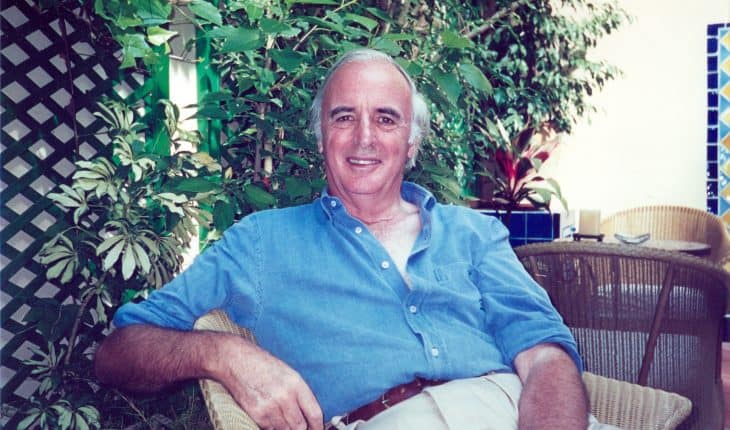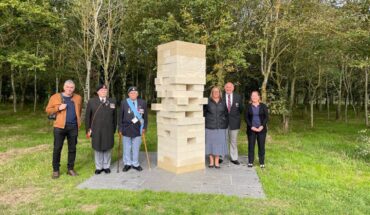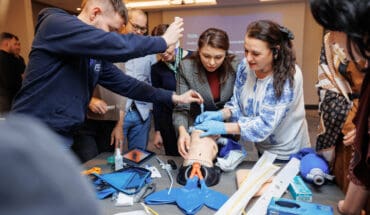For nearly 27 years, Dr Thomas Stuttaford, (widely known as Dr Tom), was the medical correspondent and columnist on The Times and his chattily-written columns were the first thing many readers turned to at breakfast time. Although entertaining, his pieces were cutting-edge, keeping up with new medical advances and exploring new breakthroughs and treatments – he wasn’t afraid of being controversial. He also wrote a medical column for The Oldie for 26 years, as well as for numerous other publications.
He was also an MP; medical advisor to Conservative Central Office, broadcaster, charity campaigner, renovator of historical houses and ornithologist, he seemed able to turn his hand to almost anything. It was my good luck to work for him for 14 years on his Times and Oldie columns and he was full of joie de vive, warmth and intellectual curiosity – there was never a dull moment with him.
It was my good luck to work for him for 14 years on his Times and Oldie columns and he was full of joie de vive, warmth and intellectual curiosity – there was never a dull moment with him.
Impeccably turned out, with a dashing Edwardian elegance, he never lost his belief in the healing power of a glass of wine, or whisky: he had wide-ranging interests in medicine, politics, the army, wine, medieval churches, gardening and antiques.
Before Dr Tom, medical reporting was very dry and factual, whereas in his columns in The Times and The Oldie, he told lively anecdotes and case histories that readers could relate to while getting his message across. Despite his success as a writer his greater passion remained medicine. ‘If I had to choose, then I prefer my work in medicine to my work in politics and journalism,’ Dr Tom liked to tell me. Although highly intellectual, he never lost his curiosity about people and his desire to get to know them better and help them.
Born in 1931, Dr Tom was brought up in rural Norfolk where both his father and grandfather had been general practitioners. In fact he was the fourth generation of doctors in his family. He was educated at Gresham’s School, where he became Head boy and Captain of rugby and then read medicine at Brasenose College, Oxford. He told me that it was at Oxford that he first began writing for student publications and became editor of the British Medical Students Journal. After two years of national service with the 10th Royal Hussars and Territorial Army service with the Scottish Horse regiment, he worked at Hammersmith Hospital and then returned to Norfolk and joined his uncle’s medical practice where Edwardian medicine was still being practised.
Unlike his forefathers, Dr Tom wasn’t fated to spend all his life in rural practice. He became The Times’s first high profile medical columnist. It was in 1981 that his writing talent first caught the eye of Harry Evans, then editor of The Times, who asked him to write health under his tutelage. ‘Write as if you are addressing dinner party guests,’ he told his protégée – advice Dr Tom never forgot. ‘And never trust other journalists,’ he added. Evans realised that the advantage of having Dr Tom as his medical columnist was that apart from his natural writing flair, as a doctor he also offered valuable insider medical expertise and contacts. He had been searching for someone who combined knowledge of medicine, politics and the media to write a medical column. Evans already knew Dr Tom and enjoyed his lively writing in The Practitioner and Pulse. Evans’s choice proved astute, as even high profile consultants trusted Dr Tom enough to allow him to interview them about delicate news matters. ‘In 1982, I was asked to cover the delivery of Princess Diana’s first child and rang her gynaecologist Sir George Pinker when she was in the first stages of labour. Sir George’s wife called him to the telephone to take my call, even though he was in his rose garden pruning his roses, as she knew that he would speak to me, but no other journalist,’ said Dr Tom.
More importantly, Dr Tom helped Harry Evans expose the thalidomide scandal in The Sunday Times and get a financial settlement for the thalidomide children.
During periods of industrial action at The Times Dr Tom would cross the picket line to file his copy by hand. Although disagreeing with the strikers, he enjoyed chatting to the union members, who nicknamed him “Dr Redsocks” for his trademark red socks, which he wore every day. Despite this chummy relationship, the protestors eventually became annoyed by his strike breaking and one occasion decided to wreck his parked car by hammering on the roof and bonnet and driving a lorry into it. Luckily for Dr Tom, he had been driving a company car that the AA towed away and quickly replaced with another. During this time he also worked as a genito-urinary doctor at The Royal London and Queen Mary’s Hospitals, in Whitechapel and the Moorfields Eye Hospital, as well as spending half a day seeing patients in private practice at 8 Devonshire Place.
Although his column was regularly parodied in Private Eye, the magazine’s founder, Richard Ingrams, was a good friend and once nominated the unflappable doctor as the person he would most like to get stuck in a lift with. Ingrams went on to found The Oldie magazine in 1992 and chose Dr Tom to write The Oldie’s monthly readers’ medical letters page. During his long career Tom also contributed regularly to various magazines and was the medical correspondent of Elle and Options.
In 1970 he was elected MP for Norwich South; he lost his seat in 1974. In two further elections he was selected as the conservative candidate in the Isle of Ely, to oppose Clement Freud. In 1996 he received an OBE for his services to politics, which started on a parish council.
In the late 1970s and 80s, Stuttaford continued to divide his time between London and Norwich and for twenty years owned a historic house, with a thirteenth century cellar, in Elm Hill. Renovating crumbling, tumble-down historic houses became a hobby and doing them up and selling them helped to pay his childrens’ school fees. Several were notoriously haunted and guests brave enough to stay overnight could look forward to eerie stories of spectral footsteps, ghostly duellers and headless men. In December 2010, Richard Ingrams, himself fascinated by the supernatural sent a BBC camera team, headed by Sarah Montague, to the Stuttafords’ five hundred year old timbered Norwich home, to record the ghostly footsteps on a dark and wintry night – for a special Christmas edition of the The Today programme. But that evening the ghostly visitors remained silent. ‘Ghosts don’t like to be talked about,’ said Pamela, Dr Tom’s wife, who wrote supernatural stories.
Despite his relatively privileged background, Stuttaford combined working as an MP with seeing genito-urinary NHS hospital patients in London’s East End for many years. This was compatible with his political life in the House of Commons where he acted as doctor to the Conservative Central Office under Margaret Thatcher. Thatcher, being partial to upper class men, with plenty of chutzpah, valued Dr Tom. His contemporaries were other Thatcherite mavericks, including Sir Alan Clark, Lord Cecil Parkinson and the younger Lord Norman Lamont.
Dr Tom married Pamela Ropner, a successful children’s author in 1957 and they were married for 57 years. Pamela died in 2013 after a lengthy illness during which he nursed her. He leaves three sons.
Dr Thomas Stuttaford, OBE, doctor, journalist and politician, was born on May 4th, 1931. He died of a suspected heart attack on June 8th 2018, aged 87.
A Memorial Service for Dr Thomas Stuttaford will be held at St Bride’s Church, off Fleet Street at 11.30am on Friday December 7th.
His published work includes To Your Good Health, published by Faber and Faber (1997); In Your Right Mind, published by Faber and Faber, (1999); The Harvard Medical School Family Health Guide, published by Cassell & Co (2003); What’s up Doc? Understanding your Common Symptoms: Health Matters, Little Books, (2003); Stress and how to Avoid It, Little Books, (2004)
- Banishing Blue Monday vibes at the London Art Fair - 21st January 2024
- The Credit Suisse Exhibition: Frans Hals - 7th January 2024
- “Winter Flowers Week” opened by Her Majesty The Queen (Camilla) - 10th December 2023






